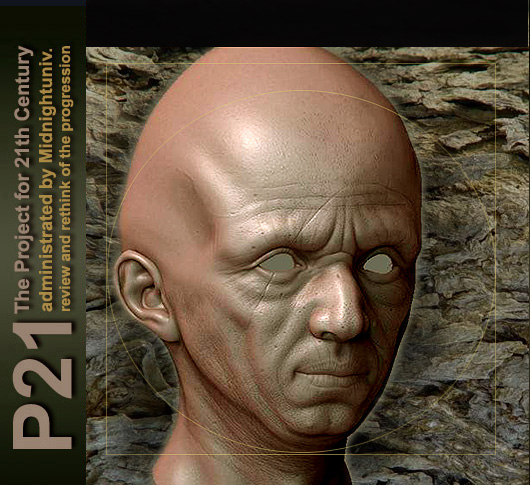



บรรณาธิการแถลง: บทความทุกชิ้นซึ่งได้รับการเผยแพร่บนเว็บไซต์แห่งนี้
มุ่งเพื่อประโยชน์สาธารณะ โดยเฉพาะอย่างยิ่ง เพื่อวัตถุประสงค์ในการขยายพรมแดนแห่งความรู้ให้กับสังคมไทยอย่างกว้างขวาง
นอกจากนี้ยังมุ่งทำหน้าที่เป็นยุ้งฉางเล็กๆ แห่งหนึ่งสำหรับเก็บสะสมความรู้ เพื่อให้ทุกคนสามารถหยิบฉวยไปใช้ได้ตามสะดวก
ในฐานะที่เป็นสมบัติร่วมของชุมชน สังคม และสมบัติที่ต่างช่วยกันสร้างสรรค์และดูแลรักษามาโดยตลอด.
สำหรับผู้สนใจร่วมนำเสนอบทความ หรือ แนะนำบทความที่น่าสนใจ(ในทุกๆสาขาวิชา) จากเว็บไซต์ต่างๆ
ทั่วโลก สามารถส่งบทความหรือแนะนำไปได้ที่ midnightuniv(at)gmail.com
(กองบรรณาธิการมหาวิทยาลัยเที่ยงคืน: ๒๘ มกาคม ๒๕๕๐)

Islam Hadhari
Midnight
University

อิสลามฮะฎอรี : การจัดการทางสังคมมลายูมุสลิมมาเลเซียที่รัฐไทยควรศึกษา
Islam
Hadhari: อิสลามอารยธรรมในสังคมมลายูมุสลิมมาเลเซีย
อับดุชชะกูร์ บิน ชาฟิอีย์ ดินอะ (อับดุลสุโก ดินอะ)
โรงเรียนจริยธรรมศึกษามูลนิธิ
[email protected]
ภาคผนวกโดย กองบรรณาธิการมหาวิทยาลัยเที่ยงคืน
บทความวิชาการต่อไปนี้
กองบรรณาธิการมหาวิทยาลัยเที่ยงคืนได้รับมาจากผู้เขียน
จากชื่อเดิม: อิสลามฮะฎอรี (Islam Hadhari) : การบริหารจัดการทางวัฒนธรรม
ในสังคมมลายูมุสลิมมาเลเซียที่รัฐไทยควรศึกษา. เป็นเรื่องเกี่ยวกับนโยบายพัฒนา
ของสหพันธรัฐมาเลเซีย ในชื่อ อิสลาฮะฏอรี หรือ อิสลามอารยธรรม อันเป็นแนวคิด
ที่น้อมนำมาจากพระคัมภีร์อัลกุรอาน ในการเผชิญหน้ากับความทันสมัยแบบ
ตะวันตก และพัฒนาการของสังคมในยุคโลกาภิวัตน์
มุสลิมบางส่วนมองเรื่องนี้ว่าเป็นความซ้ำซ้อนเชิงนโยบายกับมุสลิมสายกลาง
บ้างก็ว่าเป็นเพียงวาทศิลป์ของนายอับดุลลอฮฺ อะหมัด บาดาวีย์ นายกรัฐมนตรี
มาเลเซียคนปัจจุบัน ส่วนมุสลิมบางพวกได้ขานรับต่อเรื่องนี้เพราะความเกรงกลัว
พรรคพาส อันเป็นฝ่ายตรงข้ามกับรัฐบาลที่มีแนวคิดและเป้าหมายไปในทางตรงข้าม
อย่างไรก็ตาม แนวคิดเชิงนโยบายดังกล่าวปัจจุบันกำลังมีอิทธิพลต่อสังคมวัฒนธรรม
ในประเทศสหพันธรัฐมาเลเซีย
เพื่อนบ้านทางใต้ของประเทศไทย
midnightuniv(at)gmail.com
บทความเพื่อประโยชน์ทางการศึกษา
ข้อความที่ปรากฏบนเว็บเพจนี้
ได้รักษาเนื้อความตามต้นฉบับเดิมมากที่สุด
เพื่อนำเสนอเนื้อหาตามที่ผู้เขียนต้องการสื่อ กองบรรณาธิการเพียงตรวจสอบตัวสะกด
และปรับปรุงบางส่วนเพื่อความเหมาะสมสำหรับการเผยแพร่ รวมทั้งได้เว้นวรรค
ย่อหน้าใหม่ และจัดทำหัวข้อเพิ่มเติมสำหรับการค้นคว้าทางวิชาการ
บทความมหาวิทยาลัยเที่ยงคืน
ลำดับที่ ๑๔๗๐
เผยแพร่บนเว็บไซต์นี้ครั้งแรกเมื่อวันที่
๒๖ มกราคม ๒๕๕๑
(บทความทั้งหมดยาวประมาณ
๑๗.๕ หน้ากระดาษ A4)
+++++++++++++++++++++++++++++++++++++++++
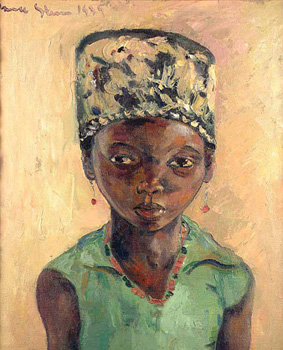
อิสลามฮะฎอรี : การจัดการทางสังคมมลายูมุสลิมมาเลเซียที่รัฐไทยควรศึกษา
Islam
Hadhari: อิสลามอารยธรรมในสังคมมลายูมุสลิมมาเลเซีย
อับดุชชะกูร์ บิน ชาฟิอีย์ ดินอะ (อับดุลสุโก ดินอะ)
โรงเรียนจริยธรรมศึกษามูลนิธิ
[email protected]
ภาคผนวกโดย กองบรรณาธิการมหาวิทยาลัยเที่ยงคืน
ด้วยพระนามของอัลลอฮ ฺผู้ทรงเมตตาปรานีเสมอ
ขอความสันติและความจำเริญแด่ศาสดามุฮัมมัด ผู้เจริญรอยตามท่าน
๑. บทนำ
มาเลเซีย หลังจากที่ ดร.มหาธีร์ มูฮัมมัดได้ลาออกจากตำแหน่งนายกรัฐมนตรีเมื่อเดือนตุลาคม
2546 และ ดาโต๊ะซรี อะหมัด บาดาวี รองนายกรัฐมนตรีขึ้นดำรงตำแหน่งนายกรัฐมนตรีคนต่อมานั้น
นโยบายด้านการเมืองและการปกครองของรัฐบาลมาเลเซีย ได้เน้นนโยบาย อิสลามฮะฎอรี
( Islam Hadhari ) ในการบริหารจัดการพัฒนาสังคมมุสลิม ไม่ว่าจะเป็นด้านการเมือง
เศรษฐกิจ และสังคม. โดยนโยบายดังกล่าวจะทำให้มาเลเซียซึ่งเป็นประเทศมุสลิม มีศาสนาอิสลามเป็นศาสนาประจำชาติ
สามารถใช้หลักการศาสนาบูรณาการกับวิทยาการสมัยใหม่ในสังคมยุคโลกาภิวัฒน์ และเคลื่อนกระแสการปะทะทางวัฒนธรรมได้อย่างกลมกลืน
จนทำให้โลกทั้งตะวันตกและโลกตะวันออกมองว่ามาเลเซียเป็นประเทศมุสลิมสายกลาง ที่สามารถพัฒนาได้อย่างรวดเร็วโดยไม่ทิ้งรากเหง้าของความเป็นมุสลิม
ซึ่งถูกมองว่าจะค่อนข้างอนุรักษ์นิยม
๒. สภาพทั่วไปของมาเลเซีย
มาเลเซีย ประเทศเพื่อนบ้านของไทย ซึ่งตั้งอยู่ในเขตศูนย์สูตร ประกอบด้วยดินแดน
2 ส่วนคือ มาเลเซียตะวันตก และมาเลเซียตะวันออก. มาเลเซียตะวันตกตั้งอยู่บนคาบสมุทรมลายู
ประกอบด้วย11 รัฐ คือ ปาหัง สลังงอร์ เนกรีเซมบิลัน มะละกา ยะโฮร์ เประ กลันตัน
ตรังกานู ปีนัง เกดะห์ และปะลิส ในขณะที่มาเลเซียตะวันออก ตั้งอยู่บนเกาะกะลิมันตัน
(บอร์เนียว) ในทะเลจีนใต้ และมีทิศใต้ติดกับอินโดนีเซีย ประกอบด้วย 2 รัฐ คือ
ซาบาห์ และซาราวัก โดยมีบรูไนดารุสซาลามอยู่คั่นกลางระหว่างรัฐทั้งสอง นอกจากนี้ยังมีเขตสหพันธ์รัฐ
อีก 3 เขต คือ กรุงกัวลาลัมเปอร์ เกาะลาบวน และเมืองปุตราจายาซึ่งเป็นเมืองราชการ
- สภาพภูมิอากาศของมาเลเซีย นั้น ร้อนชื้น มีอุณหภูมิเฉลี่ย 28 องศาเซลเซียส ตลอดปี มีภาษา มาเลย์ เป็นภาษาราชการ ในขณะที่มีการใช้ภาษาที่หลากหลายไม่ว่าจะเป็นภาษา อังกฤษ จีน ทมิฬ ในขณะที่สถิติผู้นับถือศาสนาหลายศาสนา ดังนี้อิสลาม (ศาสนาประจำชาติ ร้อยละ 60.4), พุทธ (ร้อยละ 19.2), คริสต์ (ร้อยละ 11.6) ฮินดู (ร้อยละ 6.3), อื่น ๆ (ร้อยละ 5)
- สภาพเศรษฐกิจมาเลเซียนั้น รายได้เฉลี่ยต่อหัวต่อปี 3,516 ดอลลาร์สหรัฐ (2545) GDP 52.78 พันล้านดอลลาร์สหรัฐ (2545) GDP Growth 4.2% (2545) การค้าระหว่างประเทศ 173.15 พันล้านดอลลาร์สหรัฐ (2545). ตลาดส่งออกที่สำคัญ ปี 2545 สหรัฐอเมริกา (20.17%), สิงคโปร์ (17.11%), ญี่ปุ่น (11.22%), ฮ่องกง (5.69%), จีน (5.63%), ไทย (4.26%), ไต้หวัน (3.73%), เนเธอร์แลนด์ (3.71%), เกาหลีใต้ (3.34%), สหราชอาณาจักร (2.36%), อื่นๆ (22.78%)- ตลาดนำเข้าที่สำคัญปี 2545 ญี่ปุ่น (17.76%), สหรัฐฯ (16.38%), สิงคโปร์ (11.97%), จีน (7.73%), ไต้หวัน (5.56%), เกาหลีใต้ (5.30%), ไทย (3.96%), เยอรมนี (3.68%), ฟิลิปปินส์ (3.25%), อินโดนีเซีย (3.19%), อื่นๆ (21.22%)
- การลงทุนจากต่างประเทศ ปี 2545 อันดับ 1 เยอรมัน (1.3 พันล้านดอลลาร์สหรัฐ), อันดับ 2 สหรัฐฯ (693 ล้านดอลลาร์สหรัฐ), อันดับ 3 สิงคโปร์ (233 ล้านดอลลาร์สหรัฐ), มีความเข้มแข็งทางเศรษฐกิจในอาเซียน อันดับสองรองจากสิงคโปร์
- สินค้าส่งออกที่สำคัญคือ อุตสาหกรรมอิเล็กทรอนิกส์ และสินค้าด้านการพลังงาน คือ น้ำมันและก๊าซธรรมชาติ
๓. ระบอบการปกครองของมาเลเซีย
มาเลเซียมีระบอบการปกครองที่สำคัญ 3 ส่วนด้วยกันคือ
(1) ระบอบเสรีประชาธิปไตย โดยมีสมเด็จพระราชาธิบดี (Yang-di Pertuan Agong) เป็นประมุข ซึ่งมาจากการเลือกตั้งจากเจ้าผู้ปกครองรัฐใน 9 รัฐ (ยะโฮร์ ตรังกานู ปาหัง สลังงอร์ เกดะห์ กลันตัน เนกรีเซมบิลัน เประ และปะลิส และผลัดเปลี่ยนหมุนเวียนกันขึ้นดำรงตำแหน่ง วาระ 5 ปี
(2) รูปแบบการปกครองเป็นแบบสหพันธรัฐ จำนวน 13 รัฐ มีรัฐบาลกลางแห่งสหพันธ์และรัฐบาลแห่งรัฐทำหน้าที่ด้านการบริหารระดับท้องถิ่น โดยมีนายกรัฐมนตรีเป็นหัวหน้ารัฐบาลสหพันธรัฐและมุขมนตรีแห่งรัฐ (Menteri Besar ในกรณีที่มี เจ้าผู้ปกครองรัฐ หรือ Chief Minister ในกรณีรัฐที่เหลือ) เป็นหัวหน้ารัฐบาลท้องถิ่น(3) นอกจากนี้ ยังมีเขตการปกครองภายใต้สหพันธรัฐ (รัฐบาลกลางอีก 3 เขต คือ กรุงกัวลาลัมเปอร์ (เมืองหลวง)
เมืองปุตราจายา (เมืองราชการ) และเกาะลาบวน
๔. นโยบายอิสลามฮะฎอรี
(Islam Hadhari) กับการพัฒนาสังคมมุสลิม
๔.๑ ปัญหาสังคมมุสลิมในมาเลเซีย
จากการที่กว่าร้อยละ 60 ประชากรมาเลเซียนับถือศาสนาอิสลาม และในชุมชนมุสลิมมาเลเซียกำลังเผชิญหน้ากับกระแสโลกาภิวัฒน์
ซึ่งคนมุสลิมมาเลเซียมีทัศนะว่า โลกาภิวัฒน์(Globalization) คือ แนวคิดที่ต้องการจะขับเคลื่อนให้สังคมเป็นสมัยใหม่และเจริญด้วยวิถีตะวันตก
(westernization) จากเหตุผลดังกล่าวจึงสามารถแบ่งกลุ่มคนเหล่านี้ออกเป็น 3 ประเภทกล่าวคือ
(1) สมัยใหม่หรือก้าวหน้า ซึ่งเป็นกลุ่มที่ยอมรับและเจริญรอยทุกฝีเก้าตามกระแสโลกาภิวัตน์
(2) อนุรักษ์นิยมซึ่งเป็นกลุ่มที่ต้องการหลีกหนีจากการเผชิญหน้าและต่อต้านกระแสโลกาภิวัฒน์ โดยกลุ่มนี้มีทัศนคติว่า โลกาภิวัฒน์(Globalization) คือ แนวคิดที่ต้องการจะขับเคลื่อนให้สังคมมุสลิมเป็นตะวันตก (westernization) หรือ ความต้องการให้สังคมมุสลิมมี วิธีคิดวิถีชีวิตแบบอเมริกัน (Americanization) โดยที่ศูนย์กลางแห่งอำนาจเป็นผู้ยัดเยียดวิธีคิด วิถีชีวิตแบบวัตถุนิยม บริโภคนิยม ให้ชาวโลก โดยอาศัยกระบวนการการเคลื่อนไหวของข้อมูล ทุน และทรัพยากรอย่างรวดเร็ว ดังนั้น อินเตอร์เน็ต ระบบเชื่อมโยงข้อมูล ระบบการขนส่งที่ดีจึงเป็นเครื่องมือที่สำคัญในการส่งต่อวิธีคิดเหล่านั้นสู่สังคมมุสลิม โดยวิธีการและขั้นตอนเช่น กลยุทธ 1 m 5 s(3) มุสลิมสายกลาง จากผลของสองกลุ่มดังกล่าวทำให้มีการปะทะทางความคิดอย่างรุนแรงในสังคมมุสลิมาเลเซีย อันจะทำให้เป็นอุปสรรคในการพัฒนาประเทศโดยภาพรวม และท้ายสุดทำให้เกิดกลุ่มที่ต้องการเป็นทางเลือกในการแก้ปัญหาคือ กลุ่มที่มีแนวคิดสายกลาง กล่าวคือเป็นกลุ่มซึ่งมีแนวคิดเปิดกว้างต่อกระแสโลกาภิวัฒน์ และมีท่าทีที่ระมัดระวังตัวและพร้อมรับการวิพากษ์วิจารณ์ กลุ่มมุสลิมกลุ่มนี้จะมีทัศนคติเป็นของตนเองและภาคภูมิใจในเอกลักษณ์แห่งมุสลิม สำนึกต่อพันธกิจและยึดมั่นในศาสนาที่ตนเองนับถือ เชื่อในความเป็นสากลนิยม และอารยธรรมแห่งประชาชาติ มุสลิมกลุ่มนี้ จะไม่หลีกหนีจากกระแสการเผชิญหน้าทุกรูปแบบ และกล้าที่จะสนทนาแลกเปลี่ยน(Dialoque) ความรู้ ประสบการณ์ และแนวคิดอย่างสันติกับทุกกลุ่มของลัทธิโลกาภิวัฒน์ ซึ่งแน่นอนที่สุด กลุ่มนี้มีทัศนะที่เปิดกว้างและมีจุดยืนที่เข้มแข็ง ปราศจากแนวคิดที่สุดขั้วหรือตกขอบ ซึ่งในมาเลเซียเองมีอยู่หลายองค์กรด้วยกัน แต่ที่ดำเนินการทางการเมืองมี 2 พรรคการเมืองคือ พรรคองค์การแห่งชาติเอกภาพชาวมลายู (หรือพรรคอันโม) และพรรคพาส (PAS). ในที่นี้ผู้เขียนขอกล่าวถึงนโยบาย "อิสลามฮะฎอรี"(Islam Hadhari) ของพรรคองค์การแห่งชาติเอกภาพชาวมลายู (หรือพรรคอันโม) เท่านั้น
๔.๒ นโยบาย อิสลามฮะฎอรี
๔.๒.๑ ความหมายของอิสลามฮะฎอรี
อิสลามฮะฎอรี เป็นคำเดิมจากภาษาอาหรับ 2 คำคือ "อิสลาม"(Islam) กับคำว่า "ฮะฎอรี"(Hadhari) ซึ่งแปลว่าอารยธรรม เมื่อประกอบเข้าด้วยกันตรงกับคำศัพท์ภาษาอังกฤษคือ Civilizational Islam แต่ในที่นี้หมายถึง "การพัฒนาสังคมมุสลิมสู่ความเป็นอารยธรรมที่สอดคล้องกับหลักการศาสนาอิสลาม"ความเป็นจริง นี่เป็นกระแสหรือวาทกรรมทางปัญญาของรัฐบาลมาเลเซีย โดยถูกจำแนกว่าเป็นกระบวนการองค์รวมของการกล่อมเกลาทางศาสนา บ้างก็บอกว่าเป็นมรรควิธี(Method)ที่จะนำมาซึ่งสังคมใหม่ ที่อุทิศให้กับหลักคำสอนของอิสลามในแง่มุมของการพัฒนา ซึ่งอดีตนำมาซึ่งความยิ่งใหญ่ของอารยธรรมอิสลาม.
วาทกรรมคำว่า "อิสลามฮะฎอรี" นั้นถือว่า เป็นกระบวนการการสังเคราะห์ (Synthesis) ที่นักวิชาการอิสลามศึกษาและนักการศาสนาที่อยู่ในพรรคอัมโนร่วมสมัย ได้พยายามคิดค้นและแสวงหาทางออกให้กับสังคมมุสลิมมาเลเซีย ที่กำลังประสบวิกฤติการพัฒนาตามแบบฉบับของอิสลามอิสลามฮะฎอรี จึงเป็นผลโดยตรงมาจากการสังเคราะห์แนวทางการพัฒนา เพื่อให้สอดประสานกับความก้าวหน้าทางวิทยาศาสตร์ในสังคมสมัยใหม่ของมาเลเซีย ซึ่งมีต้นแบบการพัฒนามาจากแนวทางการพัฒนาตามรูปแบบตะวันตก ที่เน้นแนวทางการพัฒนาเชิงประจักษ์ (Emperical) เป็นไปตามแนวทางวิทยาศาสตร์ (Scientific) หรือการเน้นแนวทางการพัฒนาแบบโลกียนิยม (Secularism) ซึ่งเป็นผลมาจากกระบวนการการทำให้เป็นแบบวิถีโลก(Secularization) ที่ต้องการลดความสำคัญและอิทธิพลของศาสนาแบบสุดโต่งออกไปจากชีวิตความเป็นจริงในด้านหนึ่ง
๔.๒.๒ หลักการพื้นฐานของอิสลามฮะฎอรี
เพื่อพัฒนาสังคมมุสลิมสู่อารยธรรมตามหลักการศาสนา ไม่ว่าจะเป็นด้านการเมือง เศรษฐกิจ การศึกษา สังคม ศาสนาและวัฒนธรรม ต้องอยู่ภายใต้นโยบายของอิสลามฮะฎอรี(Islam Hadhari) ที่ได้มีการกำหนดหลักการพื้นฐาน ไว้ 10 ประการ1. การศรัทธา และยำเกรงต่ออัลลอฮฺเจ้า (ในภาษามาเลย์เรียกว่า keimanan dan ketaqwaan kpd Allah )
2. ใช้หลักธรรมมาภิบาลในการบริหาร (kerajaan adil dan beramanah)
3. ประชาชนมีความคิดที่อิสระ (rakyat berjiwa merdeka)
4. มีความเป็นเลิศทางวิชาการ (penguasaan ilmu pengetahuan)
5. มีการพัฒนาเศรษฐกิจอย่างสมดุลและครอบคลุม (pembangunan ekonomi seimbang dan komprehensif)
6. มีคุณภาพชีวิตที่ดี (kehidupan berkualiti)
7. ประกันสิทธิเสรีภาพของชนกลุ่มน้อยและสิทธิสตรี(pembelaan hak minority dan wanita)
8. มีวัฒนธรรมและจรรยางาม (keutuhan budaya dan moral)
9. รักษาสิ่งแวดล้อม (Pemelihraan alam semulajadi)
10. มีความเข้มแข็งในการระวังรักษาชาติ (kekuatan pertahanan)หมายเหตุ: หากมีการเปลี่ยนแปลงถ้อยความจาก "อัลเลาะห์" เป็น "พระเจ้า" แล้ว หลักสิบประการดังกล่าวนี้ ก็สามารถใช้กับประเทศสมัยใหม่ทั่วโลกได้ โดยไม่จำกัดอยู่เฉพาะแต่ในกลุ่มประชากรที่นับถือศาสนาหนึ่งใด
จากหลักพื้นฐาน 10 ประการดังกล่าว ทำให้รัฐบาลของดาโต๊ะซรี อะหมัด บาดาวี ได้ทุ่มงบประมาณจำนวนมากไปในการพัฒนาเพื่อปฏิรูปการจัดการศึกษาทั้งศาสนาและสามัญ ทั้งของรัฐและเอกชน ตั้งแต่ระดับปฐมวัยถึงมหาวิทยาลัย ด้วยกระบวนการอิสลามฮะฎอรี. ธนาคารพาณิชย์ของรัฐและเอกชน บริษัทการประกันภัยต่างๆ ที่มีระบบดอกเบี้ยเป็นตัวขับเคลื่อนจำเป็นต้องเปิดหน้าต่างเกี่ยวกับการจัดการตามรูปแบบธนาคารอิสลาม และการประกันภัยอิสลามที่เกิดขึ้นก่อนหน้านี้กว่า 20 ปี แม้กระทั่งวัฒนธรรมการแต่งกายที่ผสมผสานความลงตัวระหว่างมลายูมุสลิมกับความทันสมัย
จากหลักการพื้นฐาน ไว้ 10 ประการดังกล่าวรัฐบาลมาเลเซียมั่นใจว่าจะสามารถเสริมสร้างความมั่นคงของสังคมมุสลิมมาเลเซีย 5 ด้านด้วยกัน คือ
1. ความมั่นคงทางจิตวิญญาน
2. ความมั่นคงทางสติปัญญา
3. ความมั่นคงทางชีวิต
4. ความมั่นคงทางด้านเศรษฐกิจ
5. ความมั่นคงทางด้านวงศ์ตระกูล
สรุป
จากการรัฐบาลมาเลเซีย ได้ดำเนินนโยบาย อิสลามฮะฎอรี (Islam Hadhari) ในการบริหารจัดการพัฒนาสังคมมุสลิม
ไม่ว่าจะเป็นด้านการเมือง เศรษฐกิจและสังคม ด้วยนโยบายดังกล่าวจะทำให้มาเลเซียซึ่งเป็นประเทศมุสลิม
สามารถใช้หลักการศาสนาบูรณาการกับวิทยาการสมัยในสังคม ที่สำคัญสามารถอยู่ร่วมกับผู้คนต่างศาสนิกและต่างวัฒนธรรมในสังคมมาเลเซียที่มีความหลากหลายทางวัฒนธรรมได้
และที่สำคัญไม่ยิ่งหย่อนไปกว่ากันคือ ชาวมาเลเซียเชื้อสายจีน ทมิฬ และต่างศาสนิกยอมรับรัฐบาลนายอับดุลลอฮฺ
อะหมัด บาดาวีย์ ได้อย่างสนิทใจ
จากที่เราทราบดีว่า ปัจจุบันประเทศมาเลเซีย มีบทบาทสำคัญในเวทีการเมืองเศรษฐกิจและสังคมของภูมิภาคอาเซียน ตลอดจนเป็นประเทศเพื่อนบ้านของไทยที่สำคัญ ประเทศมาเลเซียยังมีกลุ่มชาติพันธ์ ภูมิประเทศ และวัฒนธรรมคล้ายกับภาคใต้ของไทย จากความสำคัญของมาเลเซียในด้านต่างๆ ดังกล่าว การเรียนรู้เรื่องนโยบาย อิสลามฮะฎอรี (Islam Hadhari) น่าจะเป็นประโยชน์ต่อการจัดการทางวัฒนธรรมในจังหวัดชายแดนภาคใต้ของไทย
บรรณานุกรม
- กรมเอเชียตะวันออก.กระทรวงต่างประเทศ. มาเลเซีย. สืบค้นเมื่อ 23 มกราคม 2551จาก http://www.vacationzone.co.th/index_malaysian.asp
- นิพนธ์ โซะเฮง..อิสลามานุวัตร และ อิสลามานุวัตรองค์ความรู้. . สืบค้นเมื่อ 23 มกราคม 2551จากhttp://midnightuniv.org/midnight2545/document9598.html
-แพทริค โจรี. จาก"มลายูปาตานี"สู่"มุสลิม": ภาพหลอนแห่งอัตลักษณ์ทางชาติพันธุ์ในภาคใต้ของไทย.แปลโดย นิพนธ์ โซะเฮง และปริญญา นวลเปียน (สืบค้นเมื่อ 23 มกราคม 2551 http://midnightuniv.tumrai.com/midnight2544/0009999733.html)
- ศักรินทร์ สุมาลี. มุสลิมเผชิญหน้ากับโลกยุคโลกาภิวัตน์. สืบค้นเมื่อ 23 มกราคม 2551. จาก http://www.ymat.org/local/index.php?option=com_content&task=view&id=146&Itemid=64
-JAKIM. PEMBANGUNAN ISLAM DI MALAYSIA. สืบค้นเมื่อ 23 มกราคม 2551. จาก
http://www.islam.gov.my/e-rujukan/lihat.php?jakim=464- Malaysia. สืบค้นเมื่อ 23 มกราคม 2551 จาก http://allmalaysia.info/msiaknow/government/
- Mohd Yusof Haji Othman . ISLAM HADHARI INSTITUTE (HADHARI). สืบค้นเมื่อ 23 มกราคม 2551. http://www.ukm.my/english/Inst_hadhari.html
++++++++++++++++++++++++++++++++++++++++++
ภาคผนวก
๑: อิสลามฮะฏอรี
เรียบเรียงโดยกอง บก.มหาวิทยาลัยเที่ยงคืน
จาก http://en.wikipedia.org/wiki/Islam_Hadhari
อิสลามฮะฏอรี หรือ อิสลามอารยธรรม เป็นทฤษฎีหนึ่งของรัฐบาลมาเลเซียที่วางอยู่บนหลักการต่างๆ ของอิสลามซึ่งรับมาจากพระคัมภีร์อัลกุรอาน. เดิมทีเป็นแนวความคิดของ Tunku Abdul Rahman ในปี ค.ศ.1957 (แต่ภายใต้ชื่อที่ต่างออกไป และปัจจุบันได้รับการส่งเสริมโดยนายกรัฐมนตรีอับดุลลาห์ อาหมัด บาดาวี ของมาเลเซีย
คำวิจารณ์เกี่ยวกับอิสลามฮะฏอรี
- ความซ้ำซ้อนกับอิสลามสายกลาง (Redundancy of moderating
Islam)
มุสลิมบางคนเชื่อว่า อิสลามเป็นความคิดสายกลางทางการเมืองอยู่แล้ว และได้ผนึกรวมเข้ากับชีวิตในทุกๆ
ส่วนของสังคมโลก. สำหรับพวกเขา ความคิดสุดขั้วดำรงอยู่โดยการตีความพระคัมภีร์ผิดๆ
และมีการเลือกที่จะตีความเกี่ยวกับพระคัมภีฯร์อัลกุรอาน และฮะดีทส์. ด้วยเหตุนี้
ศัพท์คำว่า"ฮะฏอรี"จึงเป็นความซ้ำซ้อน และอาจเป็นมูลเหตุให้เกิดความเข้าใจผิดว่า
อิสลามมิได้มีลักษณะสายกลางหรือมีความคิดทางการเมืองไม่รุนแรง แต่อย่างไรก็ตาม
อิสลามฮะฏอรีก็ได้รับการต้อนรับโดยบรรดาพวกที่เกรงกลัวต่อพรรคพาส(PAS) ซึ่งเป็นพรรคการเมืองฝ่ายตรงข้ามกับรัฐบาลมาเลเซียในปัจจุบัน
ที่มีแนวทางและเป้าหมายทางการเมืองในทางตรงข้ามอย่างสุดขั้ว
- ความซ้ำซ้อนเกี่ยวกับศัพท์คำว่า"ฮะฏอรี"
(Redundancy of the term "Hadhari")
มุสลิมบางคนเชื่อด้วยว่า อิสลามเป็นศาสนาและปรัชญา ที่ผนึกรวมเอาแบบฉบับของชีวิตความเป็นอยู่เข้ามา
รวมทั้งอารยธรรมต่างๆ ที่ได้มีการพัฒนาขึ้น เพราะฉะนั้น คำว่า"ฮะฏอรี"
(Hadhari [Civilization]) จึงเป็นคำที่ซ้ำซ้อนโดยไม่จำเป็น
- อิสลามฮะฏอรี ในฐานะวาทศิลป์ของรัฐบาล
(Islam Hadhari as mere government rhetorics)
ในอีกด้านหนึ่ง แนวคิดเกี่ยวกับ"อิสลามฮะฏอรี" ซึ่งเป็นหลักนโยบายสายกลางได้นำไปสู่คำถาม
โดยเมื่อพิจารณาเกี่ยวกับมาตรา 121 (1A) ของรัฐธรรมนูญสหพันธรัฐมาเลเซีย ที่แนบชิดกับกับหลักการข้อที่
7 ของหลักปฏิบัติพื้นฐานเกี่ยวกับบทบาทหน้าที่ของบรรดานักกฎหมาย ซึ่งระบุว่า
การเข้าถึงนักกฎหมายจะต้องได้รับความยินยอมโดยทันที ไม่ว่ากรณีใดๆ และจะต้องไม่ช้ากว่า
48 ชั่วโมงหลังจากเวลาที่ประชาชนถูกจับกุมหรือควบคุมตัว. สำหรับคำนี้ยังมีความเกี่ยวพันกับนักวิชาการหลายคนใน
Jemaah Islamiyah (*) และเหตุการณ์ที่เกิดขึ้นบ่อยๆ เกี่ยวกับนโยบายทางศีลธรรม
ดูเหมือนจะเสนอว่า"อิสลามฮะฎอรี"เป็นเพียงถ้อยคำอันสวยหรูหรือวาทศิลป์เท่านั้น
(*) Jemaah Islamiyah
(JI, Arabic phrase meaning "Islamic Group" or "Islamic Community")
is a Southeast Asian militant Islamic organization dedicated to the establishment
of a Daulah Islamiyah (Islamic State) in Southeast Asia incorporating Indonesia,
Malaysia, the southern Philippines, Singapore and Brunei. JI was added to
the United Nations 1267 Committee's list of terrorist organizations linked
to al-Qaeda or the Taliban on 25 October 2002 under UN Security Council Resolution
1267.
JI has its roots in Darul Islam (DI, meaning "House of Islam"),
a radical movement in Indonesia in the 1940s. JI was formally founded on 1
January 1993 by JI leaders, Abu Bakar Bashir and Abdullah Sungkar while hiding
in Malaysia from the persecution of the Suharto Government. After the fall
of the Suharto regime in 1998, both men returned to Indonesia. where it gained
a terrorist edge when one of its founders, the late Abdullah Sungkar, established
contact with Osama Bin Laden's al-Qaeda network.
ญานวิทยา (Etymology)
"ฮะฏอรี" เป็นศัพท์ที่รับมาจากภาษาอาหรับ เป็นการอ้างถึงคำว่า"อารยธรรม"
และ "ชีวิตที่มีการตั้งรกราก"(civilization and settled life) หรือ
"การไม่เคลื่อนย้าย - อยู่ประจำที่"(sedentariness)" (ยกตัวอย่างเช่น
พวกที่ไม่ใช่อย่างเดียวกับชนเผ่าเร่ร่อน หรือ nomad), ดังนั้นศัพท์คำว่า "อิสลามฮะฏอรี"
ในตัวของมันเองจึงมีนัยยะขัดแย้งหรือตรงข้ามกับอิสลามที่เป็นพวกเร่อน หรือ เบดูดิน
(so that the term Islam Hadhari implicitly contrasts itself with the Islam
of nomads or bedouin) (*).
(*) Bedouin is a desert-dwelling Arab nomadic pastoralist,
found throughout most of the desert belt extending from the Atlantic coast
of the Sahara via the Western Desert, Sinai, and Negev to the Arabian Desert.
Non-Arab groups as well, notably the Beja of the African coast of the Red
Sea are sometimes called Bedouin.
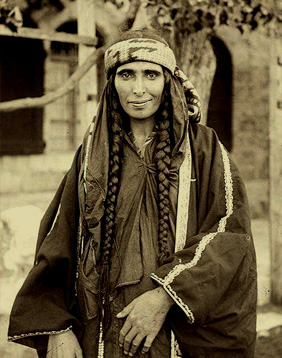
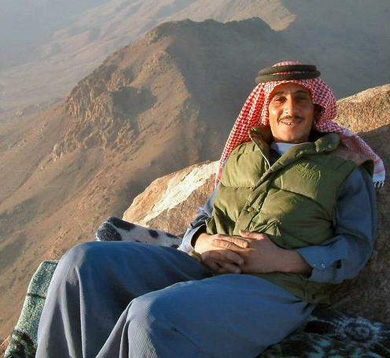
ภาพประกอบ ชนเผ่าเร่ร่อนในตะวันออกกลาง (ภาพประกอบจากสารานุกรมวิกกิพีเดีย)
(ภาคผนวกภาษาอังกฤษ) จากวิกกิพีเดีย
Islam Hadhari or "Civilizational Islam" is a theory of government
based on the principles of Islam as derived from the Qur'an. It was originally
founded by Tunku Abdul Rahman in 1957 (but under a different name), and is
now being promoted by the current Malaysian Prime Minister Abdullah Ahmad
Badawi.
It consists of 10 fundamental principles.
- Faith and piety in Allah
- Just and trustworthy government
- Freedom and independence to the people
- Mastery of knowledge
- Balanced and comprehensive economic development
- Good quality of life for all
- Protection of the rights of minority groups and women
- Cultural and moral integrity
- Protection of the environment
- A strong defence policy
Criticism of Islam Hadhari
Redundancy of moderating Islam
Some Muslims believe that Islam is already moderate and encompasses life in
every part of this world. To them, extremism exists in the form of misinterpretation
and selective interpretation of the Qur'an and the Hadiths. Therefore, the
word "Hadhari" is redundant, and may cause the misunderstanding
that Islam by itself is not already moderate. However, Islam Hadhari has been
welcomed by those who fear that PAS, the main Islamic opposition party in
Malaysia is too extreme with its goals.
Redundancy of the term
"Hadhari"
Some Muslims also believe that Islam is a religion and philosophy that encompasses
all types of lives including developed civilizations. Therefore, the word
Hadhari (Civilization) is redundant.
Islam Hadhari as mere
government rhetorics
On the other hand, the concept of Islam Hadhari as a moderate doctrine also
came into question by examining Article 121 (1A) of the Malaysian Federal
Constitution which is against Principle 7 of the Basic Principles on the Role
of Lawyers which states that access to a lawyer must be granted "promptly"
and in any case "not later than forty-eight hours from the time of arrest
or detention". The involvement of several of its academicians in Jemaah
Islamiyah and the frequent occurrences of moral policing seem to suggest that
Islam Hadhari is mere rhetorics.
Etymology
The Arabic word (from which "Hadhari" is derived) refers to both
"civilization" and "settled life" or "sedentariness"
(i.e. not being nomadic), so that the term Islam Hadhari implicitly contrasts
itself with the Islam of nomads or bedouin.
++++++++++++++++++++++++++++++++++++++++++
ภาคผนวก ๒: อิสลามอารยธรรม - แนวคิดและความหวังในอนาคต
Islam Hadhari: Concept and Prospect
http://www.islamonline.net/english/Contemporary/2005/03/Article01.shtml
The present prime minister of Malaysia, Datuk Seri Abdullah Ahmad Badawi, announced his vision of promoting Islam Hadhari as a model for development in Malaysia. His promotion of Islam Hadhari is seen as a compliment to Malaysia, for acknowledgment as an Islamic state.
What Is Islam Hadhari?
According to Badawi, Islam Hadhari, or civilizational and comprehensive Islam,
is not an inclusive concept as it also emphasizes the importance of progress-with
an Islamic perspective-in the economic, social, and political fields. Islam
Hadhari emphasizes the need for balanced development, which covers both physical
and spiritual development. Hence, Badawi proposes a holistic development approach
for Malaysia. This means a shift in development approach from a "secular
paradigm" to a "tawheed paradigm," which emphasizes developing
a thinking society, social harmony, and economic progress.
Badawi mentioned that Islam Hadhari is not a new religion. It is not a new teaching, nor is it a new madhhab (school of jurisprudence). Islam Hadhari is an effort to bring the Ummah back to basics, back to the fundamentals, as prescribed in the Qur'an and the Hadith, that form the foundation of Islamic civilization. If Islam Hadhari is interpreted sincerely and understood clearly, it will not cause Muslims to deviate from the true path.
Badawi explains that Islam Hadhari is merely an approach to foster an Islamic civilization built upon the noble values and ideals of Islam. It places substance over form. It is practical and pragmatic. It emphasizes development that is consistent with the tenets of Islam and that focuses on enhancing the quality of life for every citizen, regardless of his or her religion. This approach is also inspired by the Malaysian Muslims' firm belief that the tide of radicalism and extremism can be checked and reversed with good governance, healthy democratic practices, and employment of the citizenry through education, as well as equitable sharing of the benefits of economic growth.
Islam Hadhari, as introduced by Badawi, aims to achieve ten main principles, which Muslim nations and communities must demonstrate, namely:
1. Faith and piety in Allah
2. A just and trustworthy government
3. A free and independent people
4. Mastery of knowledge
5. Balanced and comprehensive economic development
6. A good quality of life
7. Protection of the rights of minority groups and women
8. Cultural and moral integrity
9. Protection of the environment
10. Strong defenses
These principles have been formulated to ensure that the implementation and approach does not cause anxiety among any group in this multiracial and multi-religious country. These principles have been devised to empower Muslims to face the global challenges of today.
Islam Hadhari is complete and comprehensive, with an emphasis on the development of an economy and civilization capable of building the Muslim Ummah's competitiveness. For a society to prosper, the glorious heritage of Islamic civilization in all its aspects must be used as a reference, and should be the source of inspiration.
Badawi encourages and guides the Muslim community to work hard towards not only regaining the glory of Islamic civilization but also move forward and share the emerging economic prosperity and face the challenges of the 21st century. With this, he believes that the goal of developing a Malaysian society of excellence, glory, and distinction can be achieved.
Is Moderation a Feature
of Islam Hadhari?
Datuk Prof. Dr. Abdullah Md. Zin, minister of religious affairs, says, "Wasatiyah,
or a balanced life, would be a more precise way to describe Islam Hadhari.
Moderation, on the other hand, could imply caution to the point of neglecting
traditions. Islamic scholars tend to shy away from using the word 'moderate'
because it can be manipulated and exploited by external influences. In the
same way, scholars are cautious about the word 'modern,' which they associate
with Western civilization. The word 'progressive' could also be used to define
Islam Hadhari but wasatiyah is preferable."
The main objectives that Islam Hadhari is trying to achieve in Malaysia can
be summed up in the following eight points:
1. Restoring moderation and embracing the mainstream, which will help strengthen
both the people and the state.
2. Valuing good character, which should be central to the society in order to help it become
a role model for both the Ummah and humanity as a whole.
3. Adopting seriousness and accountability in dealing with society's main undertakings.
4. Building all social relations upon trust and good morals.
5. Respecting law and order.
6. Cherishing unity, cooperation, and solidarity.
7. Implementing genuine Islamic teachings and realizing the objectives of the Shari`ah
8. Empowering the state to be in a leading position, not feeble and weak-willed.
The main characteristics
of Islam
The main characteristics of Islam Hadhari are as follows:
- Universality: It is based on Islam, a universal message for mankind that is based on mercy.
- Godliness: It is based on divine scripture and works on bringing people closer to their Lord. Hence, it is a godly end and means, and has a divine source and reference.
- Morality: Its ultimate concern is maintaining a good character and good human relations.
- Tolerance: Tolerance is essential to create a society based on peace, stability, unity, cooperation, and solidarity among all it segments and with all its different traditions and beliefs. This kind of tolerance is based on trying to genuinely understand the Other and respect cultural and religious convictions.
These are the characteristic features of Islam Hadhari that distinguish it from all the other relevant perspectives:
- Comprehensiveness: It integrates both scripture-based sciences and modern sciences. Another feature is its all encompassing program to deal with the individual, society, and the state.
- Moderation: This is the main methodology for the perspective, which is based on gradualism and easiness in implementation. Through this implementation, there will be a balance between the interests of all-the individual and the society, spiritual and worldly needs, and ideals and reality.
- Diversity: The context of Islam Hadhari is wide ranging; it covers a wide range of interests on different levels; it is open to new adjustments and to other human experiments and experiences
- Humanity: As a call, Islam Hadhari is focused upon people.
What Is the Difference
Between Islam Hadhari and Political Islam?
Prof. Zin states that Islam Hadhari works from the bottom up, from the villages,
and in a systematic way. Political Islam, which is practiced by some Islamic
parties, works the opposite way, from up to down. Often it leads nowhere.
This was how Ayatollah Khomeini ruled, and where did it take his country?
According to the writings of the Malaysian scholars, Islam Hadhari will focus on improving the quality of life, focusing on four areas as follows:
1. Knowledge: Islam demands a fully literate tradition. More knowledge automatically forces moral responsibility upon a man. "Fear of God is the beginning of wisdom."
2. Balanced development: Avoiding extravagance in any area-including religion.
3. Wealth (pillar of livelihood): Encouraging earning an honest living to accumulate wealth.
4. Health care: Disability and sickness are not qadar (destiny) and striving to overcome these is on God's shown path. Avoid decadence-drugs and other activities that destroy health.
In the early period of Islam, Muslims followed closely the examples of the Prophet in leadership and in the acquisition of wealth and knowledge, while still performing the compulsory `ibadah (acts of worship). It is clear that the Islam Hadhari concept contributes towards overall human progress that is balanced between spiritual and material, between progress and moral values, between religion and worldly concerns.
In conclusion, the introduction of Islam Hadhari by Ahmad Badawi, prime minister of Malaysia, is timely and should be well understood, and the details applied in daily conduct. Islam Hadhari has the potential to curb the militant instincts among religious detractors.
It is important for the Muslim Ummah to be guided in understanding and practicing Islam as a comprehensive way of life, as a means to build a civilization. A wholesome way of life will create the balance between a person's responsibilities in this world and in the Hereafter. Islam is not merely a ritual, because ritualism is meant solely for the Hereafter. The government of Malaysia has never practiced secularism, which rejects the Hereafter and focuses solely on worldly matters. Islam must be lived as a system that integrates the worldly life with preparations for the Day of Judgment.
Datuk Seri Abdullah Ahmad
Badawi in Brief
Abdullah Ahmad Badawi was born on November 26, 1939, to a prominent family
in Kepala Batas, Penang. He received a bachelor of arts in Islamic studies
from the University of Malaya in 1964. After graduation, he joined the Malaysian
Administrative and Diplomatic Corps. He resigned in 1978 to become the member
of parliament for his constituency of Kepala Batas, which he still represents
today.
Since coming into power as prime minister, Badawi has clamped down on corruption, giving more power to anti-corruption agencies and making it easier for the public to reveal corrupt practices to the authorities. He has also arrested several Mahathir-era cronies on charges of corruption, a move that is widely applauded by the public.
In the 2004 general election, Badawi's first election as the incumbent prime minister, he delivered a stunning victory for his party's coalition Barisan Nasional by winning 198 out of 220 seats in parliament. This wrested control of the Terengganu state government back from the opposition Islamic Party of Malaysia (PAS), as well as coming close to capturing the traditional PAS stronghold of Kelantan. The victory was widely regarded as an approval of his vision of moderate Islam over religious fundamentalism and support for his anti-corruption policies.
References:
- New Straits Times. Interview with Minster in the Prime Minister's Department (Religious Affairs) Datuk Prof. Dr. Abdullah Md. Zin, Kuala Lumpur, August 10, 2004.
- Speech by prime minister of Malaysia on occasion of the conferment of the honorary degree of doctorate of law by the International Islamic University Islamabad, Pakistan, February 17, 2005.
- M. Periasamy. Islam Hadhari: Prospect from a Non-Muslim Perspective. (Kuala Lumpur: Ministry of Information, 2004).
- Faisal Haji Othman, Islam Hadhari: Masalah Anjakan Paradigma Pemikiran Islam. (Kuala Lumpur: Ministry of Information, 2004).
- Speech by Prime Minister of Malaysia, Abdullah Ahmad Badawi, UMNO Supreme Council, Kuala Lumpur, September 23, 2004.
- Zainal Abidin Bin Abdul Kadir, Islam Hadhari in Malaysia, (Kuala Lumpur: Ministry of Information, 2004).
- Office of the Prime Minister of Malaysia, Web site: http://www.pmo.gov.my/website/webdb.nsf/+++++++++++++++++++++++++++++++++++++
เกี่ยวกับผู้เขียน: Mohamed Sharif Bashir, PhD Islamic University of Malaysia (KUIM), Kuala Lumpur.
The works posted on this page reflect solely the opinions of the authors.
++++++++++++++++++++++++++++++++++++++++++
นักศึกษา
สมาชิก และผู้สนใจบทความมหาวิทยาลัยเที่ยงคืน
ก่อนหน้านี้ หรือถัดจากนี้สามารถคลิกไปอ่านได้โดยคลิกที่แบนเนอร์
ไปหน้าแรกของมหาวิทยาลัยเที่ยงคืน
I สมัครสมาชิก I สารบัญเนื้อหา 1I สารบัญเนื้อหา 2 I
สารบัญเนื้อหา 3 I สารบัญเนื้อหา
4
I สารบัญเนื้อหา
5 I สารบัญเนื้อหา
6
ประวัติ
ม.เที่ยงคืน
สารานุกรมลัทธิหลังสมัยใหม่และความรู้เกี่ยวเนื่อง
e-mail :
midnightuniv(at)gmail.com
หากประสบปัญหาการส่ง
e-mail ถึงมหาวิทยาลัยเที่ยงคืนจากเดิม
[email protected]
ให้ส่งไปที่ใหม่คือ
midnight2545(at)yahoo.com
มหาวิทยาลัยเที่ยงคืนจะได้รับจดหมายเหมือนเดิม
มหาวิทยาลัยเที่ยงคืนกำลังจัดทำบทความที่เผยแพร่บนเว็บไซต์ทั้งหมด
กว่า 1300 เรื่อง หนากว่า 25000 หน้า
ในรูปของ CD-ROM เพื่อบริการให้กับสมาชิกและผู้สนใจทุกท่านในราคา 150 บาท(รวมค่าส่ง)
(เริ่มปรับราคาตั้งแต่วันที่ 1 กันยายน 2548)
เพื่อสะดวกสำหรับสมาชิกในการค้นคว้า
สนใจสั่งซื้อได้ที่ midnightuniv(at)gmail.com หรือ
midnight2545(at)yahoo.com
สมเกียรติ
ตั้งนโม และคณาจารย์มหาวิทยาลัยเที่ยงคืน
(บรรณาธิการเว็บไซค์ มหาวิทยาลัยเที่ยงคืน)
หากสมาชิก ผู้สนใจ และองค์กรใด ประสงค์จะสนับสนุนการเผยแพร่ความรู้เพื่อเป็นวิทยาทานแก่ชุมชน
และสังคมไทยสามารถให้การสนับสนุนได้ที่บัญชีเงินฝากออมทรัพย์ ในนาม สมเกียรติ
ตั้งนโม
หมายเลขบัญชี xxx-x-xxxxx-x ธนาคารกรุงไทยฯ สำนักงานถนนสุเทพ อ.เมือง จ.เชียงใหม่
หรือติดต่อมาที่ midnightuniv(at)yahoo.com หรือ midnight2545(at)yahoo.com
1
2
3
4
5
6
7
8
9
10
11
12
13
14
15
16
17
18
19
20
21
22
23
24
25
26
27
28
29
30
31
32
33
34
35
36
37
38
39
40
41
42
43
44
45
46
47
48
49
50
51
52
53
54
55
56
57
58
59
60
61
62
63
64
65
66
67
68
69
70
71
72
73
74
75
76
77
78
79
80
81
82
83
84
85
86
87
88
89
90
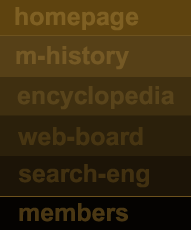























หลักการพื้นฐาน ๑๐ ประการของ อิสลามฮะฏอรี
1. การศรัทธา และยำเกรงต่ออัลลอฮฺเจ้า
2. ใช้หลักธรรมมาภิบาลในการบริหาร
3. ประชาชนมีความคิดที่อิสระ
4. มีความเป็นเลิศทางวิชาการ
5. มีการพัฒนาเศรษฐกิจอย่างสมดุลและครอบคลุม
6. มีคุณภาพชีวิตที่ดี
7. ประกันสิทธิเสรีภาพของชนกลุ่มน้อยและสิทธิสตรี
8. มีวัฒนธรรมและจรรยางาม
9. รักษาสิ่งแวดล้อม
10. มีความเข้มแข็งในการระวังรักษาชาติ
จากหลักพื้นฐาน ๑๐ ประการดังกล่าว ทำให้รัฐบาลของดาโต๊ะซรี อะหมัด บาดาวี นายกรัฐมนตรีคนปัจจุบันได้ทุ่มงบประมาณจำนวนมากไปในการพัฒนาเพื่อปฏิรูปการจัดการศึกษาทั้งศาสนาและสามัญ ทั้งของรัฐและเอกชน ตั้งแต่ระดับปฐมวัยถึงมหาวิทยาลัย ด้วยกระบวนการอิสลามฮะฎอรี. ธนาคารพาณิชย์ของรัฐและเอกชน บริษัทการประกันภัยต่างๆ ที่มีระบบดอกเบี้ยเป็นตัวขับเคลื่อนจำเป็นต้องเปิดหน้าต่างเกี่ยวกับการจัดการตามรูปแบบธนาคารอิสลาม